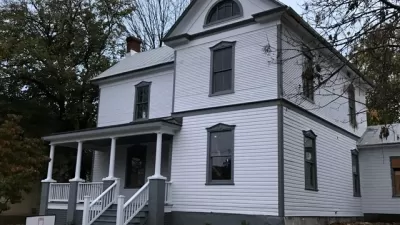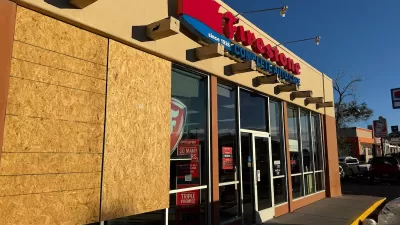In Newburyport, Mass., critics tried to stop Mark Roland from converting an historic clam shack into a home. Roland claims: 'It's recycling.'
"The last remaining Newburyport clam shack can be transformed into a single-family home after a 4-1 vote Tuesday night by the Zoning Board of Appeals.
The vote granted a special permit for the wood-shingled building overlooking the Merrimack River's Joppa Flats. It came after a year-long campaign by the structure's owner, Mark Roland."
"For centuries, the curve in the road heading from Newburyport to Plum Island was lined with more than a dozen wood-shingled clam shanties that acted as workrooms for families who made their living on the Joppa mudflats. As far back at 1704, the narrow sliver of beach between the road and the river was considered no man's land, and families acquired squatter's rights simply by building a rickety wooden shack on their spot of choice.
"People had the building; when they didn't want it anymore, they sold it to someone for a buck," said Bruce Thurlow, a Byfield carpenter whose family owned Roland's clam shack for three generations.
Diggers would row out to the mud flats in dories just before low tide and collect clams until the water flowed back in. Workers would then shuck baskets of clams outside their shanties alongside the trolley tracks that led out to the beach.
"Clams were poor man's food," Thurlow said. "The people were uneducated, and the language was colorful. It was a wonderful place to grow up."
Things changed when pollution in the Merrimack River closed Joppa Flats to clamming. Over the years, the shanties were torn down, vandalized, and abandoned to the elements until the Thurlows' row, once three conjoined buildings, was the only one remaining.
Roland moved in across the street from the buildings in 1984, restoring his circa-1700s saltbox house and raising two children there. When Thurlow's uncle Nestor decided to sell the shack in 1994, he offered it to Roland for $24,000."
FULL STORY: Vote allows Newburyport clam shack to become a home

Trump Administration Could Effectively End Housing Voucher Program
Federal officials are eyeing major cuts to the Section 8 program that helps millions of low-income households pay rent.

Planetizen Federal Action Tracker
A weekly monitor of how Trump’s orders and actions are impacting planners and planning in America.

Ken Jennings Launches Transit Web Series
The Jeopardy champ wants you to ride public transit.

California Invests Additional $5M in Electric School Buses
The state wants to electrify all of its school bus fleets by 2035.

Austin Launches $2M Homelessness Prevention Fund
A new grant program from the city’s Homeless Strategy Office will fund rental assistance and supportive services.

Alabama School Forestry Initiative Brings Trees to Schoolyards
Trees can improve physical and mental health for students and commnity members.
Urban Design for Planners 1: Software Tools
This six-course series explores essential urban design concepts using open source software and equips planners with the tools they need to participate fully in the urban design process.
Planning for Universal Design
Learn the tools for implementing Universal Design in planning regulations.
Ada County Highway District
Clanton & Associates, Inc.
Jessamine County Fiscal Court
Institute for Housing and Urban Development Studies (IHS)
City of Grandview
Harvard GSD Executive Education
Toledo-Lucas County Plan Commissions
Salt Lake City
NYU Wagner Graduate School of Public Service




























